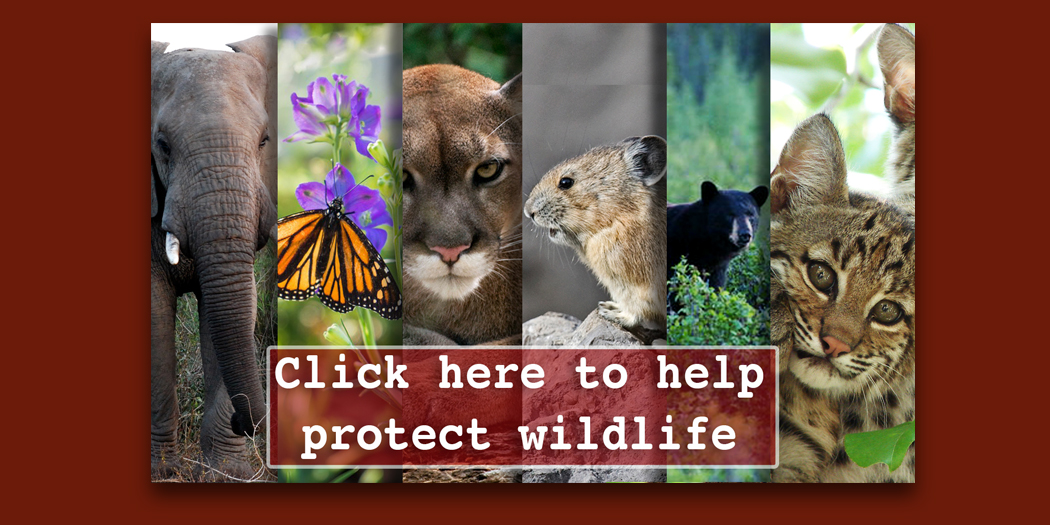|
We are stepping up to Big Oil, Big Polluters, land developers and lawmakers every day to protect these animals and their habitats. But we can't protect endangered species alone -- we need your help. Can you make a small monthly contribution to sustain our work in 2016 to protect endangered species?
Friend,
Here at Environmental Action, we care about our wildlife. Although these critters don't always make top news, they are extremely important. So here is an update on some of the wild things you love that we're still working to save.
Wolves: We just learned that the Idaho Department of Fish and Game (IDFG) has illegally collared four wolves in the Frank Church-River of No Return Wilderness Area. The tracking collars could easily be used by the state to follow the wolves to their packs and kill them. That means not just four wolves, but entire packs may be in mortal danger.
Florida Panthers: With less than 200 Florida panthers remaining in the wild, we need to act if these wild cats are to survive. The National Park Service can protect critical habitat for Florida panthers, but Big Cypress National Preserve, which provides a sanctuary for the rare Florida panther and eight other federally listed endangered species is under threat. The Burnett Oil Company is threatening this national treasure with attempts to expand drilling in the preserve -- including fracking and seismic testing for fossil fuels.
California Pika: Global warming is having a devastating effect on the California Pika. A recent study confirms that global warming has already reduced the habitat range of the pika and led to the extinction of local populations. In addition to being a favorite sight for thousands hikers who live near or visit California, the pika is a key species for the Sierra Nevada ecosystem as their foraging helps to diversify and spread vegetation.We must act now to save this species from extinction before it's too late, but the Department of Interior has so far failed to list the pika as an Endangered Species and take the necessary steps to prevent its permanent disappearance. Donate now to help is move them to action on behalf of these amazing tiny critters in 2016.

Monarch Butterfly: Monarch butterflies are an iconic, beautiful species native to the U.S. that migrate up to 3,000 miles from Canada to Mexico, traversing most of the middle of the U.S. each year. But Monarch populations have declined 90 percent since the 1990s, and could go extinct in the next few years if action isn’t taken. Fortunately, the Fish and Wildlife Service (FWS) has opened a docket to consider listing the Monarch as an Endangered Species. This could give Monarchs, and their food source: milkweed, the protections they need to survive. But the Department of Interior so far favors a voluntary approach that relies on agro-chemical giant Monsanto to act on behalf of the species, rather than demanding immediate action to stop pollution.
The Endangered Species Act: The Endangered Species Act is under attack from lawmakers, with a slew of legislation proposed this year -- including dozens of budget riders tacked onto unrelated bills -- aimed at restricting wildlife protection. The act protects more than 1,500 plant and animal species in the U.S. and over 650 foreign species, saving many from the brink of extinction, but the act itself is now under threat from conservative politicians backed by the oil and gas lobby.
We want to save all species to for future generations, and you know we won't let sport hunters and polluters stop us. So please help us protect these animals from going extinct. Please click here to help us protect our wildlife.
Thanks for all you do,
Sally and the wild things at Environmental Action
|
